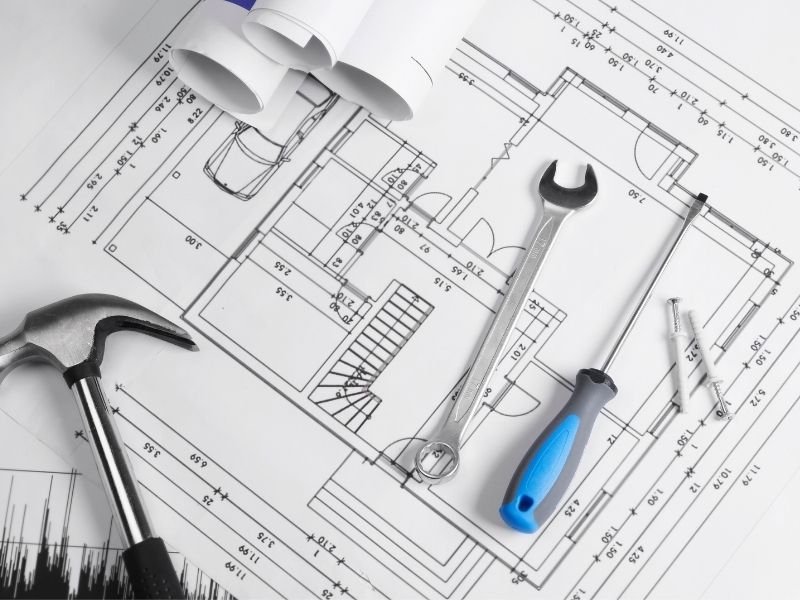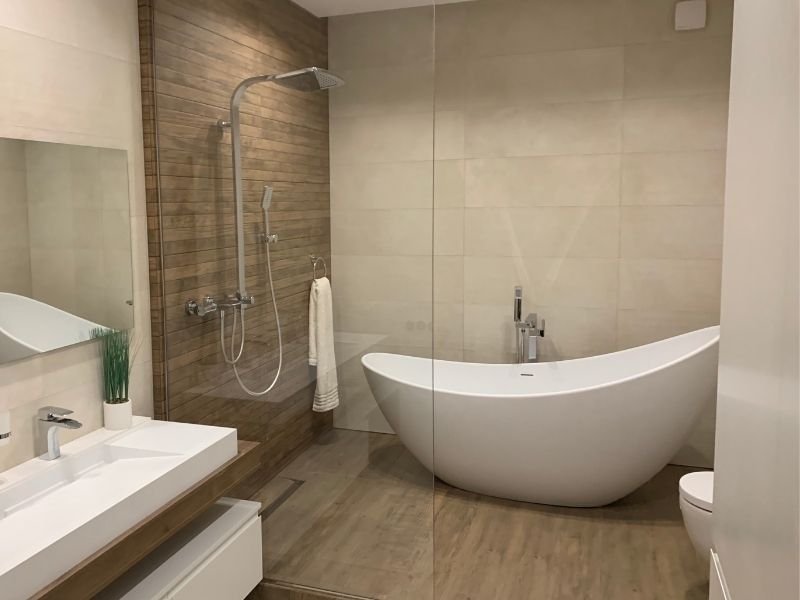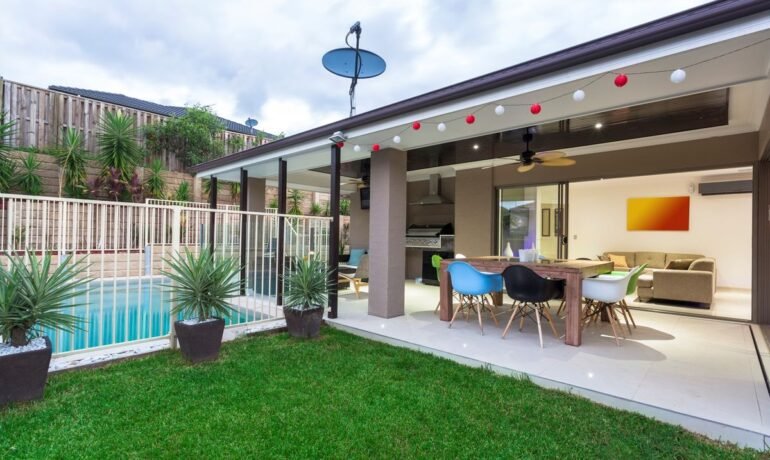Looking to flip a house for profit, invest in real estate, or purchase a home to update for your own use? Consider a few factors to avoid ending up with a poor investment.
1. Set your renovation budget
As renovations can be costly, setting a firm budget at the start will help you estimate costs and realistically achieve your goals. Some experts recommend a renovation budget at 10% of the home value to avoid over capitalising on your investment.
Your budget should ideally include labour, painting, flooring, tiling, landscaping, repairs, appliances, fixtures and materials. While you can save with a few DIY tasks, significant electrical and plumbing changes require licensed professionals.
Also, reserve 10% of your reno budget (or 1% of the property value) for contingencies to avoid getting caught out with unexpected costs during the renovation.
2. Plan thoroughly
Before you start your renovation, it’s important to assess the property. Do a thorough inspection of the home and note any damage, termites or repairs that are needed.
It is also useful to research similar homes in your area through online databases like CoreLogic, while some people even hire architects or design consultants for renovations.
Making an offer conditional on the results of an inspection may even be possible, and this allows you to review any information provided by your home inspection report before moving forward.
Your plan should ideally include:
- List of materials needed
- Schedule for each stage of the renovation
- Budgets for each stage
- Permits to apply for
- Trades required
- Steps before and during construction
It’s a good idea to take some time upfront to think about precisely what you want to achieve and how to do it. The right project plan can help you visualise the end result and estimated costs. Plus, it can help you get local council approvals quicker.
3. Avoid too many structural changes
Purchasing a property that requires too many structural changes can quickly get expensive. Extending a house, building walls and obtaining permits significantly increase your budget.
To minimise structural costs and alterations, purchase a property that meets your space requirements and has a solid structure. It is far easier and more cost-effective to make cosmetic changes.

4. Research resale potential of the property
If you intend to flip in the future, make sure you research resale potential. This can also help you with your renovation budget and will give you an idea of what price points are the most profitable. Some factors to research include:
- The location of your property and surrounding properties. Does the street look appealing? Is it close to schools, transport and amenities?
- What prices are renovated properties in the area selling for? Are you able to add features that appeal to buyers?
- Does the property look attractive? Front yards and overall appearance are important for buyer appeal.

5. Consider specific renovations that add the most value
The right renovations can add value to your property. Some ideas include updating the external appearance to increase curb appeal, outdoor landscaping and interior renovations.
Bathroom and kitchen upgrades are typically the most valuable improvement projects. Concentrate on items with the most visual impact as outdated fittings and fixtures can affect the price buyers are willing to offer.
Simple transformations like refurbishing dated surfaces, new benchtops and fixtures, replacing tiles, adding storage and repainting can possibly increase your home’s value by several thousands of dollars.
While bathroom and kitchen renovations can add a lot of value, it’s important to understand the costs involved. According to bathroom renovation specialists, DCON Group, complete bathroom renovations typically cost at least $15,000. Complex or structural renovations (i.e. moving walls, changing plumbing positions) can set you back $30,000 or more.
6. Speak to the local council
Carry out a search with your local council to determine whether any planning issues can impede renovations. Find out what you can and cannot do by checking local guidelines.
Some issues could be easements or restrictions on the property, which could limit extensions. In addition, if the house is old enough, it may even be heritage listed, which can severely limit the options available to renovate. Check whether you need planning or building permits before construction to avoid expensive fines later.

7. Find the right tradies
The key to a successful renovation is choosing the right contractors. Home renovations typically require several trades, including electricians, carpenters, tilers and painters. Depending on the scope of your renovations, you may also need to have a licenced builder manage the project.
Hiring the right tradies does not mean choosing the cheapest quotes. It’s important to balance cost and quality; otherwise you risk poor or non-compliant work. Always check reviews and references before hiring a professional.
Buying a Property to Renovate? Talk to Bright Property Advocates
We hope these tips make it easier for you to purchase your next property to renovate. If you want to buy a property in Melbourne or the Mornington Peninsula, let Bright Property Advocates help you with your next purchase. We understand the market, and our buyer’s agent services can help you find the right property that maximises your return on investment.
Related Posts
- 4 STEPS TO BUYING YOUR FIRST HOME
Well done for making it here! If you are reading this article it probably means…
- Residential Property Investing
We all heard that buying real estate is a good investment, however there is a…
- Mornington Peninsula Wineries to warm your heart during winter
Winter just arrived and restrictions have been lifting slowly. Businesses are wanting to get back…
